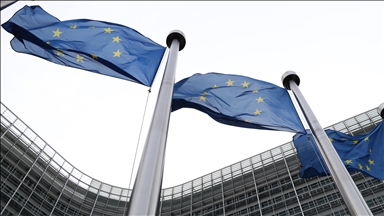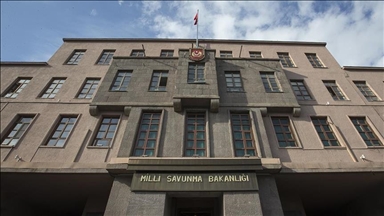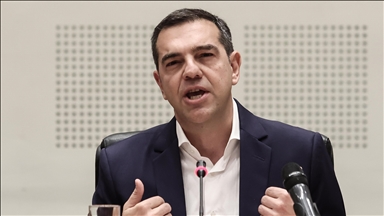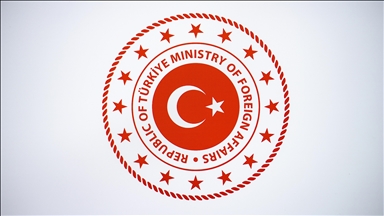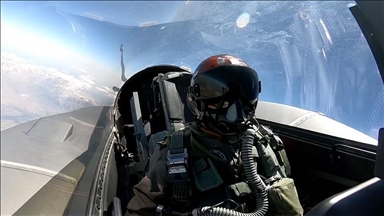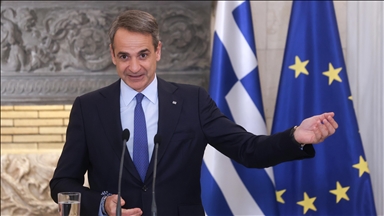
By Fatih Hafiz Mehmet
ANKARA
The Greek media is publishing more negative stories about Turkey than the Turkish media does about Greece, according to one international relations expert.
Fragile ties between Turkey and Greece have fallen to new lows following Greek courts’ repeated refusal to extradite eight alleged putschist ex-Turkish soldiers in the wake of the 2016 defeated coup and the Turkish detention last month of two Greek soldiers.
The first quarter of 2018 has been particularly tense. Apart from the soldiers issue, the Greek Cypriots' unilateral hydrocarbon search activities is a matter of grave concern to Turkey.
Professor Ali Huseyinoglu, a member of Trakya University’s Balkan Research Institute, told Anadolu Agency that Turkish-Greek relations had already been fragile before the alleged putschist ex-Turkish soldiers fled to Greece in July 2016.
“There is also the issue of historical ‘otherness’,” Huseyinoglu said.
“In Greece in 2018, the most powerful ‘other’ neighboring country is Turkey,” he said, adding that the resulting prejudice against Turkey is being fanned by politicians and the media.
Bias
Huseyinoglu said both the right-wing and left-wing Greek media hold anti-Turkey bias.
“Turkey’s image in the Greek media is much more negative than the image of Greece in the Turkish media,” he said, adding that this exacerbates the Greek public’s anti-Turkish attitude.
“If the Greek media didn’t publish so much negative news about Turkey and the Turkish president, maybe a part of population wouldn’t see Turkey and the Turkish president so negatively,” he said.
He said the issue of the eight Turkish soldiers in Greece and the two Greek soldiers in Turkey is the most current problem between the two countries.
“It has also brought other chronic problems of bilateral relations to the forefront like the issues of the Aegean and Cyprus,” Huseyinoglu said.
As a result, chances shrink that both countries will sit at the table and take steps to solve these problems, he added.
Huseyinoglu said a lot of positive steps in Turkish-Greek relations had been taken since 1999, but now the current and chronic problems overshadow these positive steps.
On far-right Greek Defense Minister Panos Kammenos’ actions and statements against Turkey, Huseyinoglu said: “Kammenos is continuing his anti-Turkey and anti-Erdogan attitude, and isn’t getting much pushback from the major coalition partner, the far-left Syriza party.”
He added that he doesn’t expect solutions to the old and new problems in bilateral relations in the very short run.
'16 times more news'
Professor Tarik Oguzlu of Antalya's Bilim University said the Greek media carries more news about Turkey than the Turkish media does about Greece.
“According to one study, there is 16 times more news in the Greek media about Turkey than news in Turkey about Greece,” Oguzlu said.
This also means developments in Turkey have more influence on Greek public opinion, he added.
On the other hand, the Turkish media doesn’t follow developments in Greece so closely.
“This shows that Greece isn’t very important for Turkey’s global vision, but Turkey is in a very important position in Greece’s vision,” Oguzlu said.
There is also the psychological impact of Turkey’s economic growth and military strength on Greeks. Their media has made Greeks believe that Turkey’s power in the region hurts them.
Oguzlu said Greece also feels an artificial sense of threat about Turkey.
He also said when ties between the EU and Turkey remain fragile and tense, Turkish-Greek relations are also prone to producing negative developments.
As an example, he said Greek Cypriots tried to benefit from the current tense atmosphere and accelerated their unilateral efforts for hydrocarbon exploration around the disputed island of Cyprus.
If Turkish-European relations were good and Greece supported that process, it would be much more difficult for Greek Cypriots to make trouble for Turkey, he argued.
Furthermore, Oguzlu said the Greek public would support better ties with Turkey due to economic motivations like bilateral trade and investments, especially after the 2008 economic crisis in Greece.
He also noted that the number of Turkish tourists visiting Greece had been on the rise since the economic crisis.
Anadolu Agency website contains only a portion of the news stories offered to subscribers in the AA News Broadcasting System (HAS), and in summarized form. Please contact us for subscription options.


